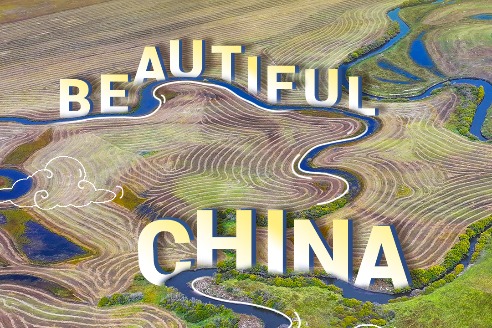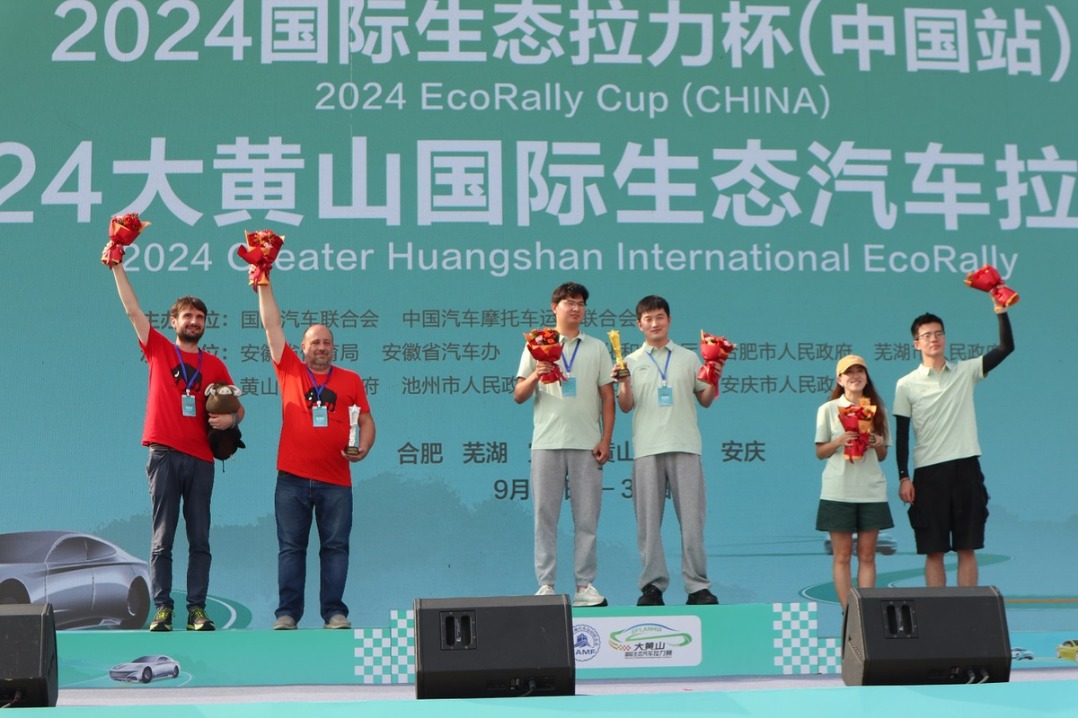Collaboration creates symphony of progress


Any person who enters the National Committee of the Chinese People's Political Consultative Conference building will be impressed by a magnificent painting adorning the auditorium wall.
The grand work of art portrays a historic gathering from the early days of the New China in 1949, showcasing the leadership of the Communist Party of China with leaders from various other political parties.
Titled Early Spring, the painting is 4.28 meters high and 13.36 meters long, and shows 96 figures engaged in intimate conversations, standing or sitting together. Among them are prominent figures like Chairman Mao Zedong and the founding members of other political parties who played pivotal roles in supporting the CPC during the nation's establishment and development.
The spirit of collaboration and unity among these leaders extends beyond the canvas and permeates the very design of the CPPCC auditorium. Symbolism abounds in the intricate details, such as the eight-petal peony-shaped ceiling lamp and the eight columns flanking the meeting room. These elements serve as visual reminders of the collective efforts of non-Communist parties working hand in hand toward shared national aspirations.
The enduring closeness and unity between the CPC and other political parties persist to this day. An annual tea party is held in the hall before New Year's Day each year, where CPC leaders and representatives from diverse backgrounds gather to reflect on the past year and usher in the new one.
The system of multiparty cooperation and political consultation under the leadership of the CPC is a basic element of China's political framework. Within this framework, the CPC and other political parties operate as harmonious partners, sharing a common vision of revitalizing the Chinese nation.
This collaborative dynamic is like an orchestra performance, with the CPC leadership the conductor guiding the diverse talents of non-Communist parties to create a symphony of progress and development.
Since the 18th National Congress of the CPC in 2012, the CPC leadership has issued regulations to improve the channels and procedures for the non-Communist parties to better exercise political consultations.
Leaders from non-Communist parties have a direct channel to express their opinions and recommendations on significant matters. This inclusive approach ensures that diverse perspectives are considered in the decision-making process, fostering a culture of dialogue and mutual respect.
With members from various fields and backgrounds, the non-Communist parties bring a wealth of expertise and insights to the table. Through regular consultations and streamlined communication channels, these parties play a vital role in offering feedback, raising concerns, and contributing to the governance process.
Since 2016, the eight political parties have been entrusted by the CPC to supervise difficult poverty eradication work in eight provincial regions. Starting from 2021, the eight parties started a supervision program of the environmental protection work along the Yangtze River.
In the context of China's political landscape, political parties are like co-drivers seated alongside the CPC, which assumes the role of the primary driver. This arrangement fosters a collaborative environment where parties work together to anticipate and address potential challenges and pitfalls on the journey ahead. The overarching objective is to ensure the vehicle is steered effectively, emphasizing collective success over considerations of replacing the driver.
This model of cooperation represents a departure from the dynamics typically seen in two-party systems, where opposition parties often prioritize critiquing the ruling party rather than aiding in achieving shared objectives, the multiparty cooperation in China emphasizes mutual assistance and progress.
Such a partnership overcomes the lack of supervision in a one-party system, as well as the instability in a two-party system caused by the vicious competition among the parties and interest groups.
Just as President Xi Jinping has stressed, "Democracy is not an ornament to be put on display, but an instrument for addressing the issues that concern the people."





































